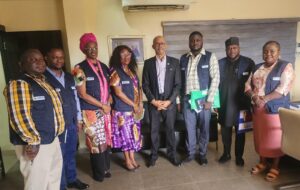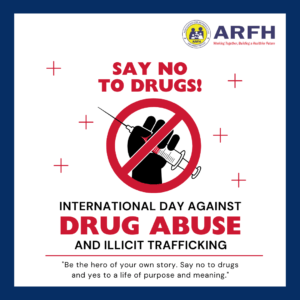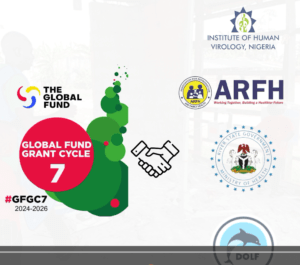Female condoms are the only woman-initiated method that offer dual protection against unintended pregnancy and sexually transmitted infections, including HIV. In Nigeria, it is listed among the 13 life saving essential commodities by the government of Nigeria. ARFH in partnership with Education As Vaccine (EVA) have been leading advocacy and awareness effort to support Female Condom programming in Nigeria through the “Advocacy for Change: Scaling up knowledge and acceptance of Female Condom Programming in Nigeria” known as the Female Condom Advocacy Project (FCAP).
ARFH in partnership with Education As Vaccine (EVA) have been leading advocacy and awareness efforts to promote Female Condom programming in Nigeria through the implementation of the “Advocacy for Change: Scaling up knowledge and acceptance of Female Condom Programming in Nigeria” known as the Female Condom Advocacy Project (FCAP) in FCT, Lagos and Kaduna States. The FCAP project is being supported by Rutgers WPF. Other collaborating partners on the project include; Society for Family Health (SFH), Oxfam Nigeria, UNFPA and the Federal Ministry of Health. The aim of the project is “to Scale-up Female Condom Programing as an Integral part of Family Planning Programing in Nigeria”.
To achieve the goal of the project, Female Condom Advocacy Update meeting was held at Rockview Hotels, Abuja on July 25, 2015. targeted at Female Condom Advocacy Champions and Key Policy and decision makers in reproductive health in Nigeria. The purpose of the update meeting was to provide updates on FCAP project implementation, increase understanding of FC champions and key stakeholders on FC products and technologies currently available and in development, solicit the continued commitment and support of key stakeholders on female condom programming in Nigeria and strategize on how to engage the new government on Female Condom programming in the country.
Participants were drawn from Federal Ministry of Health (FMOH) NACA, FC advocacy champions, newly inaugurated and trained youth advocates, UAFC partners-ARFH, SFH, EVA, the media, CSO organizations focused on women, networks -AAFP and CIS-FP. The FMOH Head of Reproductive Health Division, Dr. Kayode Afolabi declared the meeting opened highlighting in his address critical FC advocacy issues which guided discussions all through the meeting. Some of the issues he flagged cheapdiazepamonline.com are: FC recognized by government as one of the least utilized commodities due to poor awareness, hence the need for champions to contribute to increasing awareness and uptake through their advocacy efforts to all stakeholders. He also enumerated some of the key challenges as change in government and dwindling government resources which can affect FP programs in-country. He however, stressed the critical role of FC champions and encouraged all to identify key opportunities for FC advocacy despite the challenges. According to him, Advocacy and support from partners can reinforce recommendations on FP presented by the FMOH to government and help increase and sustain support including funding for FP in-country. Most of the participants got familiar for the first time on varieties of FCs and were enlightened and encouraged to get regular update reports from the FCMi website. Participants recognized the need for more concerted advocacy efforts for FCs in the country and identified the following as key recommendations and next steps:
- Need to effectively engage more women groups in Female Condom advocacy for awareness creation and increase in uptake of FCs as women are great vehicles for information dissemination.
- Integration of FC advocacy activities into existing activities of champions and partners is key in the face of dwindling resources, for sustainability and avoiding duplication of efforts. Consequently, it was agreed that work plans be shared and FCAP integrate planned advocacy efforts into current advocacy activities of networks which can help achieve more and reach top level decision makers in-country. Other organizations present also identified opportunities for FC advocacy integration in their work.
- Building Alliances –strategic alliances with networks such who currently have plans to engage new government on RH financing, advocate to professional associations e.g. Nigerian Medical Association (Women’s wing) e.t.c.
The meeting was very successful as all advocates present pledged their renewed commitment to advocating for FCs having been equipped with creative ideas garnered during discussions, knowledge on current technologies in FCs and skills on the use of the social media in advocating for FCs. This is expected to enhance FC advocacy activities in Nigeria.
See photos of the event here




